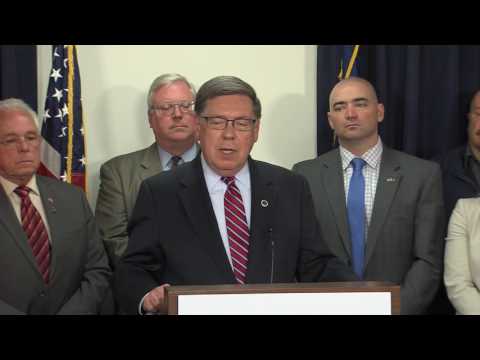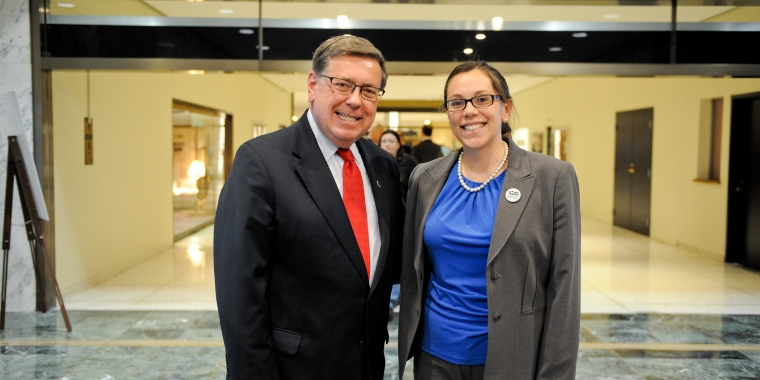
What Benefits Can Illegal Aliens Receive?
James L. Seward
October 4, 2015
During the recent flap over Gov. Spitzer's plan to issue drivers' licenses to illegal aliens, the question arose as to what benefits an illegal alien in New York can receive. Here is a quick look at what New York State grants to illegal immigrants.
Conservation. Nonresidents of the state can purchase fishing and sporting licenses with any photo ID (including a passport from another country), and those who want to hunt must add in proof of having hunted before (such as a license from another state or evidence of having taken a hunter education course). According to the Office of Parks, Recreation and Historic Preservation, a valid address is the only requirement to purchase an Empire Passport, which allows unlimited access to New York State Parks.
Given these requirements, it is possible for illegal aliens to obtain legal hunting and fishing privileges in New York State, as well as access to all state parks.
Education. As a result of a 1982 Supreme Court decision, states are required to provide K-12 public education for students without legal immigrant status. New York State is in compliance with this decision. SUNY tuition policy states that undocumented aliens who attend New York high schools for at least 2 years and graduate from them may be eligible for the in-state tuition rate. However, illegal immigrants are ineligible for the tuition assistance program (TAP).
Health. Proof of citizenship is required to qualify for Medicaid, unless a woman is pregnant, or the situation is considered an "emergency." New York State law requires that hospitals treat everyone who requires emergency care. "Continuing" care, by federal definition, is not included.
Labor. Believe it or not, illegal immigrants are eligible for workers' compensation, but not unemployment insurance. Labor standards laws also still apply to illegal aliens, such as the minimum wage, hours of labor or prevailing wage on public construction projects.
Mental Hygiene. Hospitals have a responsibility to treat patients with emergency medical conditions, including mental illnesses.
Welfare. Whether illegal aliens can obtain state benefits is not clear-cut. The short answer appears to be that they are not legally entitled to most benefits, but do in fact receive them.
Under federal law, any alien who is not a "qualified" alien is ineligible for state and local public benefits. To be qualified one has to be here under asylum, admitted for permanent residence, or fit another limited federal category.
Federal rules generally bar illegal aliens from participation in state and local public benefit programs, unless the benefit is for the treatment of an emergency medical condition, is short-term, non-cash, in-kind emergency disaster relief or immunization.
New York also has a similar regulation under its rules that govern eligibility for the receipt of Temporary Assistance for Needy Families (TANF). Lawful residence in the United States, if the recipient is an alien, is among seven factors that affect eligibility.
A fair interpretation of the federal statute and state regulation must result in the conclusion that illegal aliens should not receive any form of state public assistance. However, illegal aliens do, in fact, receive state public benefits. That's because the burden of determining lawful status in the U.S. is on the shoulders of county social services employees who have neither the legal jurisdiction nor the practical ability to determine one's immigration status. Only an immigration official or federal worker whom the Secretary of Homeland Security has authorized may determine the immigration status of a person in the country.
Typically, any proof an illegal alien provides as evidence of legal status, regardless of its fraudulent nature, will satisfy social services agencies that determine the person's benefit eligibility because an intake clerk simply cannot make the determination that someone is an illegal alien. Therefore, the law is usually overlooked and illegal aliens manage to qualify for state and local benefits.
Share this Article or Press Release
Newsroom
Go to Newsroom
Budget Boost for Animal Shelter Improvements
April 24, 2017


